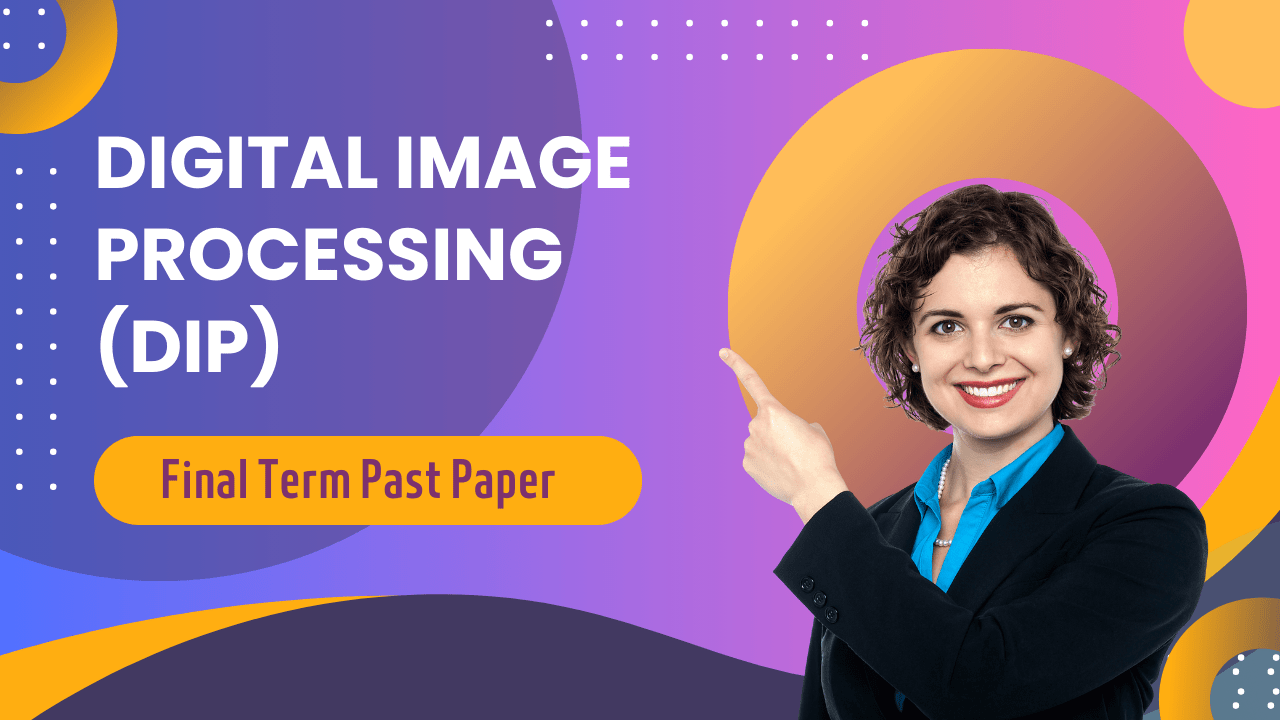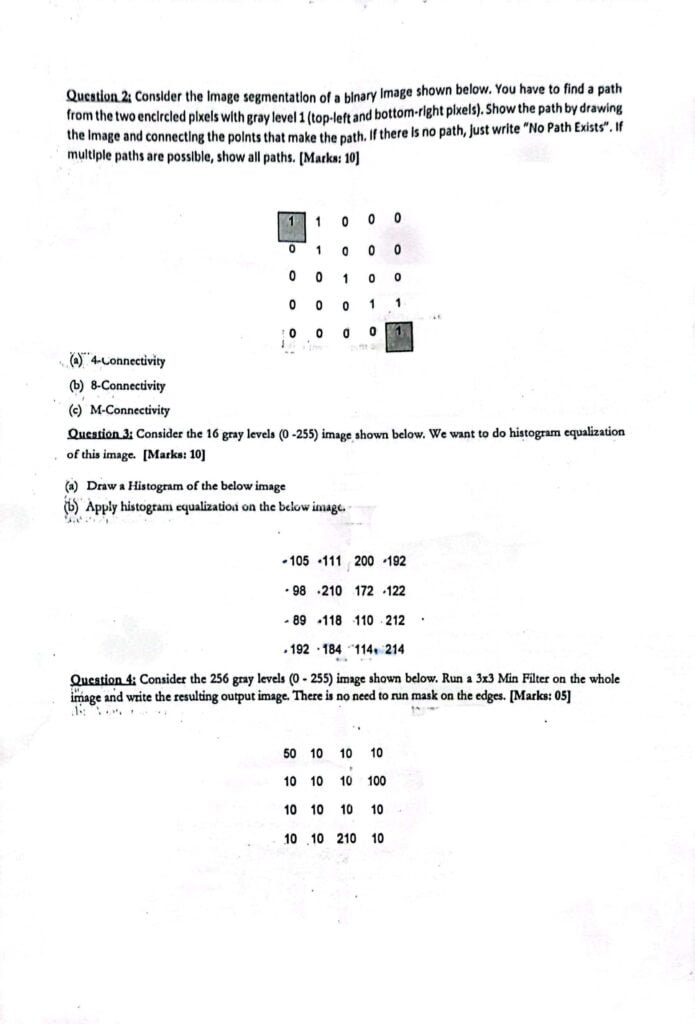Digital Image Processing | Final Term Past Paper | Superior University | VU Exam Guide

Table of Contents
Unlocking the Power of Digital Image Processing: Your Gateway to Exciting Opportunities
Greetings from the world of digital image processing, bright minds! Being familiar with this subject matter is essential to your success if you’re a Superior University student preparing for your final term exams. We’ll go into detail about what digital image processing is all about, what you can learn, how important it is in different sectors, how to use it in real time, job possibilities, pay expectations, and much more in this blog article. Now let’s get started!
Introduction to Digital Image Processing
Digital image processing, or DIP for short, is a subfield of computer science and engineering that specializes in utilizing algorithms to manipulate digital images. These algorithms are intended to improve photos, extract valuable data from them, and adapt them to a variety of uses.
What You’ll Learn
Upon completing this subject, you’ll gain proficiency in various aspects of digital image processing, including:
- Image Enhancement
- Image Restoration
- Color Image Processing
- Image Segmentation
- Feature Extraction
- Image Compression
- Object Recognition
Importance of Digital Image Processing
It is impossible to exaggerate the significance of digital image processing. It is used in many different industries, including robots, security and surveillance, medical imaging, satellite imaging, and entertainment. In general, DIP’s methods and resources can be advantageous to any industry that works with images.
Real-Time Applications
There are many real-world uses for digital image processing. For example:
Medical Imaging: Medical imaging methods such as MRIs, CT scans, and X-rays significantly depend on image processing methods to provide precise diagnoses.
Satellite Imaging: The processing of satellite images aids in environmental monitoring, urban planning, and weather forecasting.
Face Recognition: Image processing is used in applications such as smartphone unlocking and security systems to identify faces.
Entertainment: Virtual reality, video games, and movies all use image processing techniques for special effects.
Career Opportunities and Salary Expectations
Completing a course in Digital Image Processing opens doors to a myriad of career opportunities. You can pursue roles such as:
- Image Processing Engineer
- Computer Vision Engineer
- Research Scientist
- Data Scientist
- Software Developer (specializing in image processing)
Salaries in this field vary depending on factors like experience, location, and the specific industry. However, entry-level positions typically offer competitive salaries with ample room for growth.
Achievements on a Big Level
Proficiency in Digital Image Processing can lead to major contributions to cutting-edge research, creative solution development, and industry impact. The potential are endless, from improving medical technologies to transforming driverless vehicles.
Benefits of Digital Image Processing
Gaining proficiency in digital image processing has many advantages. It not only gives you access to profitable job options, but it also gives you highly sought-after abilities in the current digital world. It also develops creative and problem-solving skills, which are vital in any line of work.
Current and Future Value
Professionals with expertise in digital image processing are in high demand in the market right now. The future significance of DIP will only increase as sectors continue to harness the power of data and technology. You can stay ahead of the curve and relevant in the employment market by keeping up with the most recent developments in the industry.
FAQs
Q: Why is Digital Image Processing important from an exam point of view? A: Digital Image Processing is a fundamental subject that forms the basis of many advanced courses in computer science and engineering. Mastering the concepts covered in this subject will not only help you excel in your exams but also lay a strong foundation for your future academic and professional endeavors.
Q: How can I prepare effectively for exams in Digital Image Processing? A: Practice is key! Solve past papers, work on coding assignments, and experiment with different algorithms to deepen your understanding of the subject. Additionally, seek guidance from professors and peers, and don’t hesitate to clarify any doubts you may have.
Final Term Past Paper
Make sure to study previous papers to gain a better understanding of the format of questions in the Digital Image Processing final semester exam. All Superior University midterm and final term previous papers are available for download at vuexamguide.com. You can get important knowledge about the exam style, question patterns, and areas of focus by examining past exams.


Note: You can also checkout all Subject Final Term Past Papers of Superior University.
Conclusion
To sum up, digital image processing is more than simply a subject—it’s a doorway to an infinitely fascinating world. Gaining proficiency in the ideas and methods covered in this course will prepare you to take on problems, come up with creative solutions, and establish a lucrative career in the rapidly changing world of technology. Now go ahead and explore and realize your full potential!
 Virtual University
Virtual University
 Superior university
Superior university